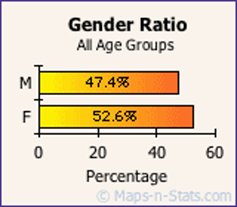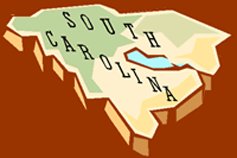Charleston, South Carolina Drug Rehab
Charleston: South Carolina, Alcohol and Drug Addiction Information

Charleston is rich with historical landmarks dating back to early colonization through the Civil War. The city has dozens of museums, art galleries and performing arts venues as well as aquariums, parks, historic forts, plantations and miles of beaches.
Charleston’s crime rates for such as murder, robbery and aggravated assault are slightly higher than the national average. Charleston continues to also have an ongoing drug problem.
Charleston: South Carolina’s Drug Source

The U.S. Drug Enforcement Administration reports that marijuana, the most prevalent illegal drug of abuse in South Carolina, primarily comes from Mexico by way of I-20. In the cities, gang members are often used as distributors by the Mexican cartels that bring all types of drugs into the country.
As has been true in many other U.S. states, the importance of cocaine is dwindling. A couple of decades before, cocaine created heavy damage in cities up and down the East Coast. But now, interest has fallen off so much that South American cocaine manufacturers have stepped up shipments to Europe and Australia as replacement markets.
Methamphetamine is a small threat compared to other drugs. In states like South Carolina, there are always a few small labs seized and a couple of hundred people go to rehab each year to get help for methamphetamine addiction. While relatively small, the threat has been growing the last several years. The number going to rehab who state that meth is the primary drug creating problems for them has risen from 228 in 2002 to 839 in 2012.
Increasing problems in South Carolina come from marijuana and painkillers. The number being admitted to rehab for either drug has been steadily increasing. For marijuana, 4,200 in 2003 increased to 5,800 in 2012. And for painkillers, 876 were admitted to rehab in 2003 and 2,282 were admitted in 2012.
At any one time, there are more than 15,000 people in substance abuse treatment —a large increase over prior years.
Among those in rehab, drug use is pervasive, even for those who are primarily there to get help for alcoholism. Fewer than 20% of those in rehab were struggling with alcohol alone. Everyone else either used drugs or abused both types of substances.
The Dwindling Spiral Will Continue

Only a very small number of people pull themselves out of drug or alcohol addiction without the support of a drug rehab program. The others will continue to struggle, amassing problems and injuries. The possibility of overdose and death is always present. Families are wise to take action as soon as possible to help an addicted person into a recovery program.
In the city of Charleston, there is an increased need for effective drug and alcohol rehab and addiction treatment centers as drug and alcohol use continues to escalate. Drug use erodes the quality of life not only for the user, but for their families and communities. Marriages and families are torn apart by mistrust, betrayal, fear and anger. Careers are ruined; companies lose millions of dollars in lost production time. Communities also struggle with higher levels of crime and homelessness.
Choosing a Drug Rehab and Addiction Treatment Program
How should a family choose a rehab program? Start by understanding the program steps and parameters. The expected result of a program should be checked out. Some programs only expect a person to comply with the program and don’t have high expectations that the person will stay sober after they leave.
Some rehab programs also use drugs as part of addiction treatment. Sometimes they prescribe medications before the addicted person has a chance to fully withdraw from drugs and get some hope for the future. If they had only had the chance to make some improvements, they would have recovered an improved mood without medications. The person may stay on these medications even long after they go home. The expectation of the Narconon program is that an individual will have learned the life skills he or she needs to stay sober and therefore, no more drugs or alcohol will be needed.
Should the Drug Rehab Location Matter When It Comes to Finding a Solution to Addiction?

A person in recovery will be faced with plenty of reminders of his past drug use or drinking if he remains in the same town he lived in while abusing substances. He may remember a house where someone overdosed or have to drive past the parking lot where he was arrested one cold winter morning.
If he has drug-using friends, they could stop by his rehab to say hello. Even if they mean well, just being around them again could trigger his cravings for drugs or alcohol.
There’s also the matter of giving the family and the addicted person a chance to heal. Sometimes things have been so rough between the addicted person and the family that they both need time to repair the damage.
There’s yet one more reason why a distance rehab is sought by families. When a person travels for rehab, he will normally be housed on that distant site. For this moment in time, he can focus on recovery alone, learning how to rebuild the life that addiction stole.
All of which is why a distant drug rehab is preferred by some families.
By providing a new, safe trigger-free environment distanced from past negative associations and surroundings for an extended period of time, the chance for success increases dramatically.
Our program provides people with positive circumstances to increase their chances of a successful recovery. The vast majority of individuals entering our program (around 80%) are from out of state or from other countries.
Narconon New Life Retreat Helps END Addiction and Alcoholism FOR GOOD.
The Narconon program steps are entirely drug-free. That means that the Narconon drug rehab program does not use drugs or medications to solve the problems caused by drugs, but does use nutrition and nutritional supplements as an important component of its delivery. Thus the program is neither a psychiatric nor a medical program, but a social education model of rehabilitation. (Of course, if a person needs medication properly prescribed by a doctor for a physical condition, he would stay on that medication.)
A Narconon Program Graduate is someone:
- Who has completed the Narconon drug rehab program
- Who has gained the skills to build a new drug-free life
- Who has recovered a brighter outlook on life and sharper perceptions as a result of the steps of the Narconon program
- Who has learned the fundamentals of personal ethics and can use these to make rational decisions
- Who knows how to solve the problems of life in a rational manner without the use of mind-altering drugs.
Call anytime to speak with one of our intake specialists about our program. We will take the time to answer your questions whether it be for yourself or a loved one. It is possible to replace the loss and pain of alcohol or drug addiction with a productive, enjoyable life.
Call now.
SOURCES:
Charleston stats courtesy of www.maps-n-stats.com (Link to Data)
DEA Website facts for South Carolina